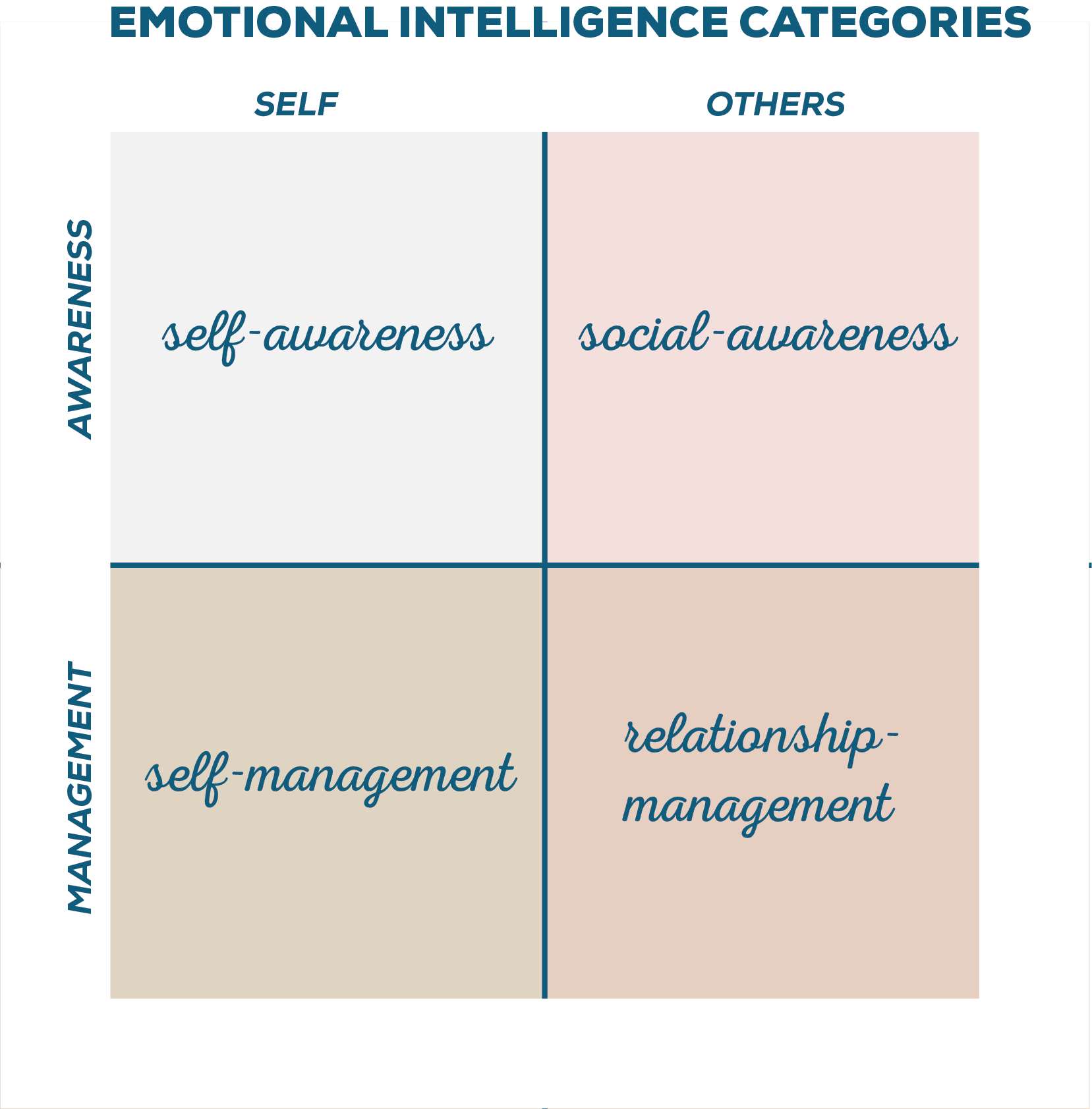Improving emotional intelligence is the key to getting work done through other people
The job of every manager is to get work done through other people. How you manage your team members creates the difference between average results and high performance.
Unmotivated people do their job because they have to. Motivated people go above and beyond because they want to. When that happens, even ambitious goals become reachable.
If you create the conditions to inspire your team to direct all their effort toward a large, common goal, your influence grows to the size of the number of people who are inspired by you. The more people you can excite with your ideas, the more you drive performance and productivity.
Emotional Intelligence Matters Because People are Emotional Beings
We like to think that people act rationally: that punishments deter certain behaviors and incentives encourage other behaviors. But in fact, most of the time we are not rational beings. Most of us make emotional decisions and then simply rationalize the decision we want to make, regardless of the consequences.
University of Virginia psychologist Jonathan Haidt brilliantly described the interplay between our emotional and rational brains as a boy riding an elephant. The elephant is the emotional brain, and the boy is the rational brain. The boy always thinks he is in charge, but when there is a disagreement, the elephant always wins.
There are countless everyday situations that illustrate this simple dynamic. Think about how it feels when you have the impulse to eat something that you know you shouldn’t. How many times do you actually resist? Or consider how frustrating it is to be behind a slow car or bus where it is risky to pass them. Often, people stop themselves from doing things they shouldn’t when the risk is really high. But even then, emotions win more often than we like to admit. That’s why we all wear seat belts.
Most leaders know that people who refuse to acknowledge and respect other people’s emotions remain on the sidelines of influence, often falling behind in career advancement or performance measures. Many leaders don’t know what to do about the people on their team who don’t understand their impact on others.
Understanding Emotions Is Essential for Relationships, Decision Making, and Performance
Emotional intelligence is the number one predictor of high performance. Some studies indicate that emotional intelligence accounts for up to 90% of leadership effectiveness. If you want to be an effective leader, you need to know how to empathize with team members to build loyalty and belonging, and then excite and inspire them to try their utmost for even ambitious goals.
People who understand and manage their own and other people’s emotions—that is, people with emotional intelligence—tend to make better decisions, build better relationships, and perform better over time. Being aware of emotional impulses and being able to control them can help them make more prudent decisions and usually avoid catastrophe and even regret.
People who develop their emotional skillsets know how to develop loyalty and belonging. Once they establish that sense of kinship, they are able to drive performance and productivity on their team, and often across a whole organizations.
Emotions Are Contagious
Emotions are contagious, so if you aren’t aware of and in control of your emotions, it’s easy to get swept up in the tide of emotions that have been set loose.
You have probably seen this dynamic as you drive around any city. Fairly often, someone makes a bad move that cuts someone off . Instinctively, the person cut off reacts, yelling or honking at the person who made the bad move. That is a normal emotional response to a dangerous situation.
Here is where emotional intelligence can make a difference: If the person who made the bad move in the first place reacts defensively, there can be a lot of yelling and road rage, compounding the unsafe move with anger and reprisal. This can block traffic and make matters worse.
But if one of the people involved is self-aware and self-managing, they often apologize or forgive the other person’s mistake, especially if there is no real damage done. One cool head will de-escalate the whole situation. Cars can set themselves aright again and traffic will flow again quickly.
It’s exactly the same at an office. Run-ins and conflicts of all kinds are a huge distraction at work. People who remain cool-headed even when other people are in an uproar are invaluable in an office and gain the respect of everyone around them. People who can resolve conflicts are often seen as safe in a workspace, and others naturally gravitate and look to them for leadership. When team members feel safe and heard in a work environment, they are more likely to work hard and put in extra effort. If the office culture is not only safe but inspiring, whole teams pull together to accomplish ambitious goals, out-performing similar teams.
When leaders are self-aware and self-managing, awareness and management of other people’s feelings becomes much easier. Research has shown that people with self-awareness and self-management often are strong in most other emotional intelligence skills like empathy, assertiveness, reality testing, and problem solving.
Get Work Done Through Others
Simply put, to motivate others, you need emotional intelligence. It’s the single most valuable skill you can have as a leader, especially now as every company needs to navigate the pandemic, resignations, cultural shifts, and economic uncertainties. Coaching and training are proven ways to develop emotional intelligence and control.
How does your team rate?
[1] Goleman, Daniel. Emotional Self-Awareness: A Primer. More Than Sound, LLC. January 12, 2017. Location 214, Kindle Edition.
